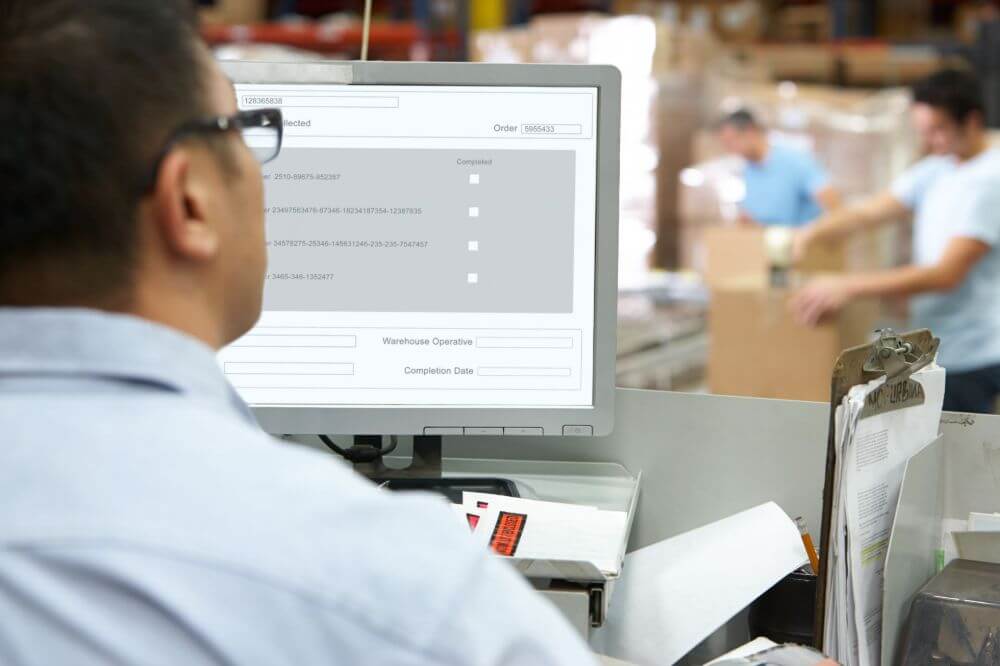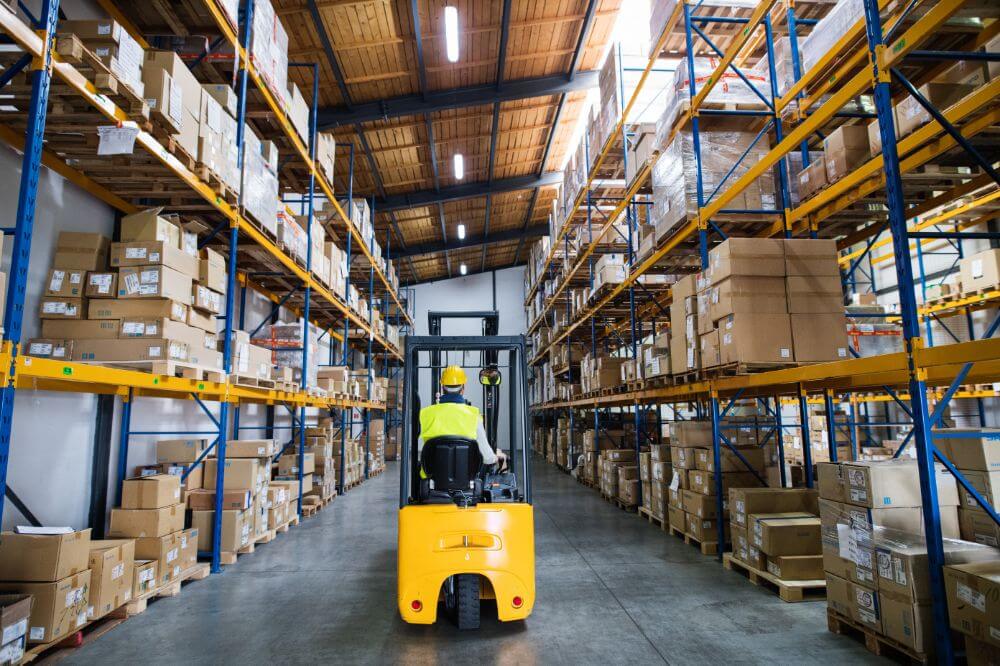Get email updates
Receive great industry news once a week in your inbox
Get email updates
Receive great industry news once a week in your inbox
Get email updates
Receive great industry news once a week in your inbox
Get email updates
Receive great industry news once a week in your inbox
Get email updates
Receive great industry news once a week in your inbox
Get email updates
Receive great industry news once a week in your inbox
Here's our brief overview of the new and emerging challenges that wholesale distributors face, and the trends that have arisen in response.
This disruption is compounded by the impact of the COVID-19 pandemic, which ravaged supply chains worldwide in 2020.
Here Are Four Ways An ERP Software Could Be The Solution You Need To Resolve The Pain Points You Face As A Wholesale Distributor.
In turn, it has also highlighted the necessity of wholesale distribution businesses to take advantage of technological trends that are emerging in response to these industry challenges.
To ensure that your wholesale distribution business is equipped to meet these new industry challenges, especially in the wake of the COVID-19 pandemic in Singapore, you'll also need to stay up to date with these emerging industrial trends.
That's why AFON IT has put together a breakdown of the most common industry challenges you're likely to face as a wholesale distributor in the near future and the resulting trends.
It also includes some technologies and solutions your wholesale distribution business can implement to overcome these challenges.
We hope this will serve as a resource informing you how to digitalise your wholesale distribution business and prepare it for the post-COVID-19 new normal.
Here Are Four Easy Tips To Help You Future-proof Your Wholesale Distribution Business.
The key to effective inventory management for your wholesale distribution business is ensuring full visibility of your inventory levels.
However, as your wholesale distribution business grows in scale, your future inventory management needs will also become more complex.
Without robust inventory management processes and an ERP system capable of fulfilling these needs, your business will experience frequent stock-outs, delays in order fulfilment, and frustrated customers who may take their business elsewhere.
It could also lead to disorganisation in your warehouses, complicating efforts by your employees to locate, pack and ship the desired goods from Singapore to your customers in a timely manner.
To ensure your wholesale distribution business is able to manage the growing complexity of inventory management, you'll need to take a data-driven approach.
.webp?width=730&name=Rise%20In%20Data-driven%20Inventory%20Management%20Amongst%20Industry%20Leaders%20730%20(1).webp)
According to research by the Aberdeen Group, market leaders in the wholesale distribution industry are 72% more likely to have business analytics integrated into their ERP software.
This provides them with the concrete data evidence they need to make better business decisions and perform more accurate demand planning for the future.
In addition, these market leaders are also 31% more likely to have real-time visibility of the status of all their processes and data.
In the scope of inventory management, wholesale distributors like your business are turning to inventory management solutions that give them the visibility needed to make such data-driven decisions.
.png?width=1000&name=Rise%20In%20Data-driven%20Inventory%20Management%20(1).png) How Data & Analytics Can Help; Source: Aberdeen Group (2017)
How Data & Analytics Can Help; Source: Aberdeen Group (2017)
With such solutions, wholesale distributors can better decide what products to stock and in what amounts and determine the right time to order new stocks of popular products in their inventory.
More sophisticated inventory management solutions (such as the inventory management module on ERP software) can provide advanced analytics and detailed consumer behaviour reports.
This provides wholesale distribution businesses like yours with the necessary tools and data to make informed decisions for marketing, sales, and internal operations matters. Consequently, it takes away a lot of the guesswork of managing a wholesale distribution business like yours in Singapore.
Another solution critical for wholesale distribution is a warehouse management system (WMS) such as Tasklet Factory's Mobile WMS solution.
Introduction to Tasklet Factory's Mobile WMS; Source: TaskletFactory
Modern WMS solutions are sophisticated enough to help wholesale distribution businesses allocate orders and perform advanced tracking on their inventory. It can even optimise how you position goods within your warehouses.
This can minimise the distance your warehouse employees need to cover to locate products as necessary and help lower your average order fulfilment times in the long run.
If you'd like your wholesale distribution business to take advantage of this emerging industrial trend, consider implementing an ERP software like SAP Business One, which provides robust inventory management capabilities.
Business-to-business (B2B) customers - including those that bring their business to wholesale distributors like your business - are adopting the use of e-Commerce platforms for their purchasing needs at an increasing rate.
According to a study by Deloitte, the year-on-year growth of B2B commerce was projected to be 19% by 2020.
But the shift towards B2B e-Commerce hit a spike due to COVID-19, with the global B2B e-Commerce market projected to reach US$26.4 trillion by 2028.
Based on this emerging industrial trend, your customers would therefore be familiar with the prompt and responsive customer service provided by business-to-customer (B2C) e-Commerce platforms. Consequently, they will expect the same level of service from B2B wholesale distribution businesses like yours in the future.

Because of this emerging trend, your competitors in the wholesale distribution industry are moving to e-Commerce platforms at a significant rate.
According to a McKinsey study which surveyed B2B businesses such as wholesale distributors, 41% of B2B respondents ranked e-Commerce platforms as the most effective means of marketing their products in 2020.
While the shift to e-Commerce presents new challenges for wholesale distributors like your business, there’s a good reason why it’s happening. Additionally, it offers new opportunities not available to companies in the industry.
For example, instead of sending physical catalogues to customers on their mailing list like in the past, wholesale distributors with an e-Commerce store make their entire selection of products available online.
This makes the purchasing experience so much more convenient for your customers in the retail industry, who can now enjoy the same customer experience purchasing your products for their businesses as they would when purchasing from a B2C e-Commerce store.
Many B2B e-Commerce marketplaces are also designed as search engines. Thus, your potential customers would be able to connect with your wholesale distribution business much more easily, especially if you can provide the products they need.
To transition your wholesale distribution business to the e-Commerce space, you should set up a modernised website that meets all of your B2B customers’ needs.
These include detailed product descriptions, answers to frequently asked questions (FAQs), and other relevant information that your customers may wish to know.
Your e-Commerce website should also include chatbots and online help desks to assist in providing customer service to prospective customers as needed.
If you’re not sure where to begin when it comes to building an e-Commerce store for your company’s website, a solution such as Sana Commerce can help you get started.
Introduction to Sana Commerce; Source: Sana Commerce
Sana Commerce can even integrate with ERP software like SAP Business One or Microsoft Dynamics 365 Business Central, allowing it to share relevant information between your business systems and your e-Commerce store.
B2B customers across the board, including those of wholesale distributors like your business, have become more likely to expect the same kind of buying experience they've gotten used to from B2C companies.
This means they expect a seamless buying process across all sales channels, access to high-quality information, and websites that offer easy access to relevant content about your business's products and services in the future.
This rise in expectations is due to your customers being increasingly managed by millennials, who are digital natives used to ordering things online and accessing the Internet on their mobile devices.
To meet this emerging trend of rising customer expectations, your wholesale distribution business must thus respond with greater agility and accuracy than before.

To provide the new breed of B2B customers with the streamlined purchasing experience they expect wholesale distributors like your business are increasingly turning to an omnichannel distribution strategy.
Such an approach is only possible if the software systems in your wholesale distribution business are fully integrated and share data with each other. An example of how this can be achieved is through implementing ERP software.
With omnichannel distribution, all your customer-related departments are linked internally.
This allows your customers to make their orders through various channels, and the relevant information would then be stored in a central database.
Your customer service officers can then access all the information related to your customer’s orders (such as the initial order, the shipment, the delivery, and the billing), no matter which channel they use to make an order with your business.
With all the information at their fingertips, your customer service officers will be able to provide service for your customers throughout the entire purchasing cycle. Through this, you can ensure a smooth and seamless customer service experience that fosters brand loyalty and encourages future repurchases.
With e-Commerce and online retail becoming a bigger part of how customers purchase goods, businesses in the wholesale distribution industry are facing the risk of disintermediation in the future.
This is when manufacturers and retailers attempt to increase their profit margins by cutting out the middleman, i.e., wholesale distributors like your business, and selling in a direct-to-customer (D2C) model.
This is possible because of technological advances, which have allowed retailers to contact manufacturers directly through online marketplaces.
It has also enabled the practice of dropshipping, where manufacturers make use of dropshipper’s website as an e-Commerce storefront to handle orders and sales but ship directly to customers.

Disintermediation may threaten the business model of wholesale distributors such as your business in the future. However, there are several ways to reverse this and achieve the reintermediation of your wholesale distribution business.
For example, you could also get your wholesale distribution business involved in the dropshipping business, serving the same role for your manufacturers and retailers as the dropshipper.
This can serve two purposes:
Another route wholesale distributors like your business can take to combat dropshipping is to embrace the use of emerging technology and industrial trends that manufacturers are not inclined to adopt at present.
For example, vendor-managed Inventory (VMI) is a business model where the buyers of a product provide information about their inventory to the vendor of that product.
The vendor is then responsible for the management and maintenance of inventory for the product, and VMI tools will alert the vendor when the buyer’s inventory levels fall below a certain point.
In the case of the wholesale distribution industry, it can mean:
With a VMI solution, you can help your manufacturers reduce their workload when it comes to anticipating orders from your wholesale distribution business and planning their production accordingly.
You can also help your retailers avoid stock-out situations by automating the delivery of products from the system whenever their inventory of your products runs low.
With the help of VMI solutions, you can provide a value-added service like this that a dropshipper could never match.
This can also help convince your manufacturing and retail partners in Singapore of the value of your wholesale distribution business in their supply chain and persuade them to retain their working relationship with you.
The COVID-19 pandemic, which affected the world in 2020, exposed the weak points of global supply chains, such as geographic dependencies, slowdowns in manufacturing, and regulatory restrictions.
These caused disruptions across the global supply chain and forced wholesale distributors to search for alternatives.
For example, wholesale distributors like your business have had to search for alternative suppliers when the manufacturers which usually supply their product were shut down due to regulations.
Delivery routes were also affected, with wholesale distributors having to figure out alternative routes by which they could receive their products from their suppliers and deliver them to retail customers.
This has instilled in wholesale distribution businesses the importance of anticipating disruptions to the supply chains and preparing for future events that may affect the global supply chain.
%20(1).jpg?width=1000&name=adrian-sulyok-sczNLg6rrhQ-unsplash%20(2)%20(1).jpg)
The COVID-19 pandemic has taught wholesale distributors like your business that it’s important to invest in the flexibility of your supply chain in anticipation of future events of a similar scale.
A flexible supply chain has to be demand-driven and capable of responding to short-term changes in customer demand for your products.
You should also move away from optimising your supply chains according to the just-in-time model wholesale distribution businesses preferred before the COVID-19 pandemic.
Instead, you should start designing your supply chains according to the just-in-time and just-in-case model and optimise for both speed and resilience in your supply chains.
This can help your business manage costs and resources while meeting fluctuating customer demand for your products with equal effectiveness.
It also helps you build a resilient foundation for your business, which can help it survive and even thrive in the industry in times of future economic distress.
Due to greater customer expectations and increased competition from various sources, having complete visibility over your operations, inventory management system and accurate forecasting of future customer demand will become vital to the success of your wholesale distribution business.
Many of your business rivals in the Singapore wholesale distribution industry have realised this. That is why they're moving away from the traditional cyclical reports, which provided data that only reflected reality over the past month.
Instead, your direct competitors are moving towards real-time reporting, which captures the state of their businesses at the moment.

Wholesale distributors like your business are also making greater use of predictive analytics to make better data-driven decisions and improve the agility of their businesses.
One way wholesale distributors use data obtained through predictive analytics is to improve the communication and understanding between the wholesale distributor and the retailers who make up their customer base.
For example, your wholesale distribution business could use predictive analytics tools to isolate the data that provides the most valuable insights to your retail customers. This data can be shown to inform them which are the most relevant and valuable products for their businesses in upcoming orders from you.
Another way in which wholesale distributors have made use of predictive analytics is by analysing data on what their retail customers have purchased in the past to predict what they will purchase in the future.
If your wholesale distribution business has this data on hand, you could, in turn, share it with your manufacturing suppliers. This can be valuable to them, as they usually only have data on the quantities of the raw materials used to make your products.
With this information, your manufacturing suppliers in Singapore can better estimate the materials needed to manufacture the right volume of products your wholesale distribution business needs. This plays an integral part in the product strategy of your business.

To resolve the business challenges emerging in the wholesale distribution industry, you need to equip your business with the tools it needs to tackle them.
Such a tool must enable your wholesale distribution business to take advantage of the trends emerging in the industry in response to old and new business challenges faced by all companies in the sector.
To that end, ERP software like SAP Business One could be the solution that you need to provide an edge to your wholesale distribution business.
Here's How SAP Business One Can Create A Digital Edge For Your Wholesale Distribution SME.
ERP software unifies your software systems across your business to provide a single source of truth. Thus, it gives you complete visibility over your business and helps you resolve issues with your business processes, such as in the supply chain or customer service.
The right ERP software also has features and functionalities necessary for wholesale distributors, such as robust inventory management and lot tracking modules.
It can also integrate other solutions that provide critical features for wholesale distribution businesses, such as customer relationship management (CRM) and WMS.
To find out more about how an ERP software like SAP Business One can give you total control over your wholesale distribution business in Singapore and prepare it for the challenges ahead, click on the image below.

To equip your wholesale distribution business with the means to face old and new industry challenges, you must take advantage of the emerging trends resulting from these challenges.
To resolve the growing complexities of the modern supply chain, you'll need to take a data-driven approach to inventory management.
Moreover, with the COVID-19 pandemic highlighting the importance of flexibility and resilience in your supply chains, you'll need to change how you optimise them to the just-in-time and just-in-case model.
With customer expectations and demands growing by the day, you'll need to invest in shifting your business towards e-Commerce platforms. Formulating an omnichannel strategy is also essential to give your business the agility to meet future demands.
To combat the risk of disintermediation, you'll have to show these customers the value of retaining the services of your wholesale distribution business.
These cannot be done without acquiring full visibility and control over your business. This is why you should consider making greater use of predictive analytics and implementing ERP software to integrate every process, system and function.
We hope you’ve found our breakdown of common challenges in the Singapore wholesale distribution industry and the trends emerging in response to these challenges useful.
At AFON IT, we always keep the industry-specific challenges your business is dealing with in mind and have experience recommending the right ERP solution for your particular needs.
If you’d like to know how we can help your wholesale distribution business overcome its industry-specific challenges with the right solution, schedule a free consultation with us today!
1 Commonwealth Lane, #07-19/21
One Commonwealth
Singapore 149544
Tel: (65) 6323 0901
Fax: (65) 6323 3177